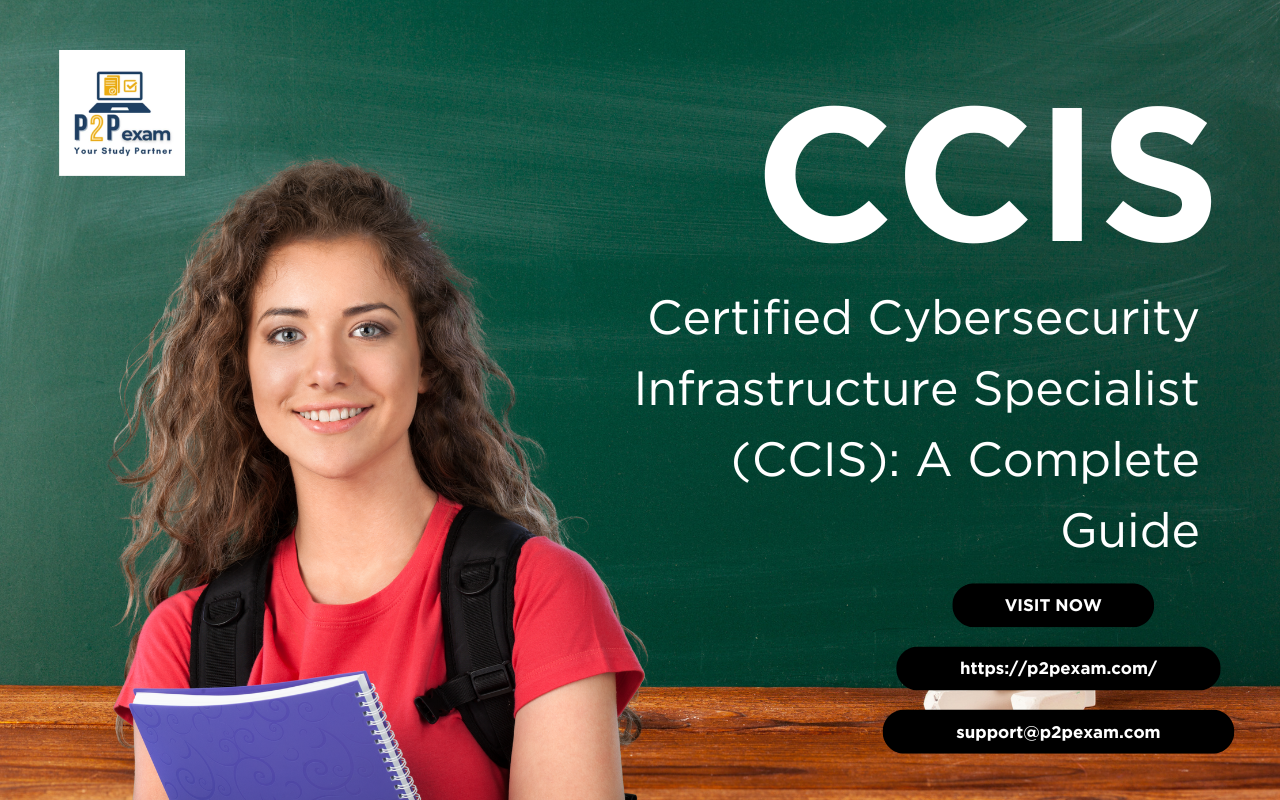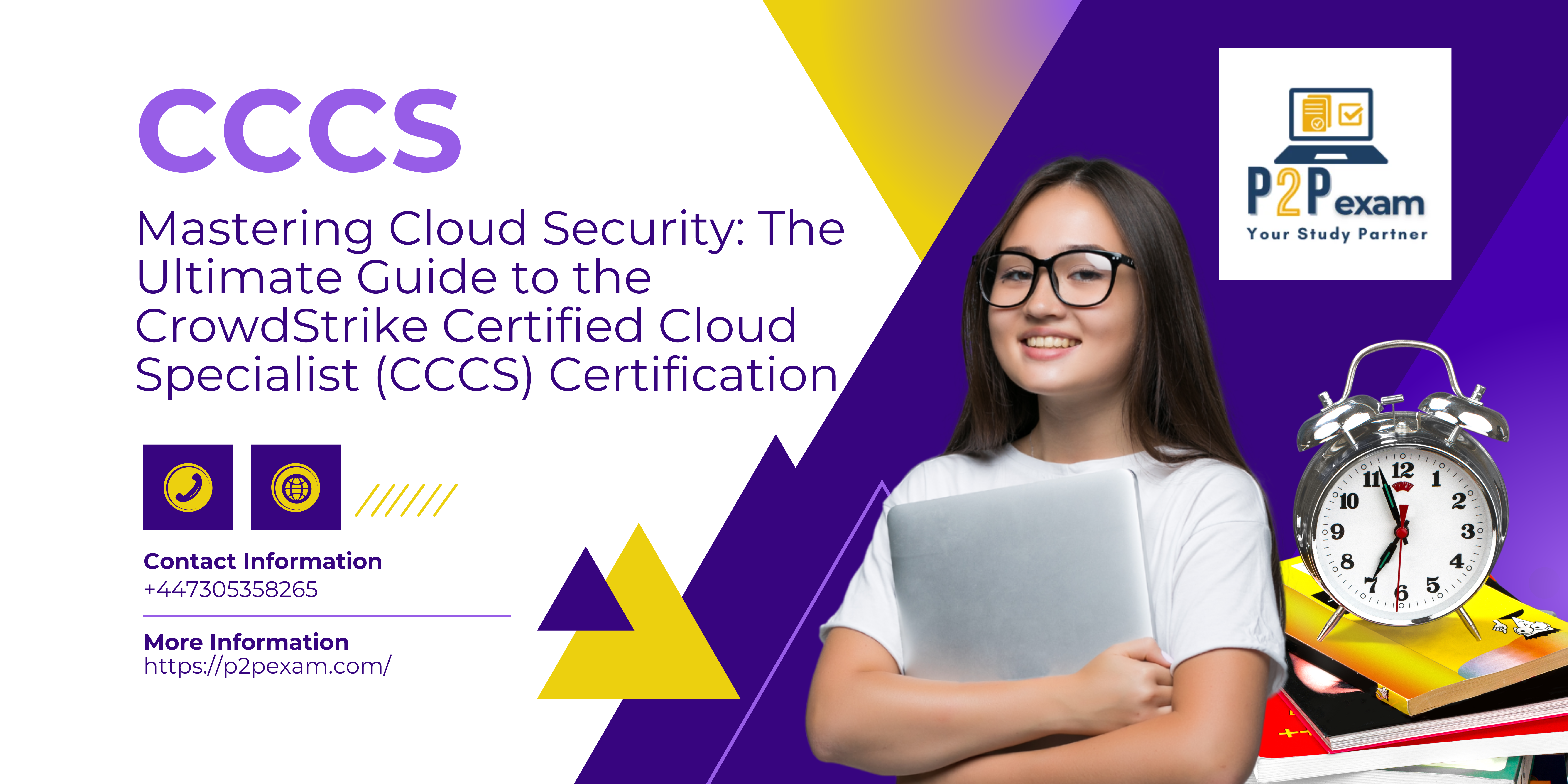Certified Cybersecurity Infrastructure Specialist (CCIS): A Complete Guide

Strong 8k brings an ultra-HD IPTV experience to your living room and your pocket.
Cyber threats are growing more sophisticated, common, and destructive in today's digital-first world. Qualified cybersecurity specialists who can oversee and protect intricate IT infrastructures are needed by organisations. By confirming your proficiency in protecting and overseeing IT environments from contemporary threats, the Certified Cybersecurity Infrastructure Specialist (CCIS) certification aims to close this crucial skills gap. This article offers a thorough analysis of the CCIS certification, covering its goals, test topics, advantages, and study methods.
What Is CCIS Certification?
A globally recognised certification for IT professionals wishing to deepen their understanding of cybersecurity principles and infrastructure defences is the Certified Cybersecurity Infrastructure Specialist (CCI) credential. It highlights the theoretical and practical facets of protecting enterprise infrastructures, networks, and systems from constantly changing cyberthreats.CCIS is ideal for:
• Network and systems administrators
• Security analysts
• IT support engineers
• Penetration testers and vulnerability assessors
• Any IT professional aiming to specialize in cybersecurity infrastructure
Why Choose CCIS?
Cybersecurity is no longer optional. As threats grow more complex, the demand for certified professionals rises. CCIS helps you:
• Gain hands-on knowledge of critical infrastructure defense
• Understand security frameworks and protocols
• Prove your capabilities to current and potential employers
• Enhance your career with better job opportunities and salaries
The certification is often regarded as a stepping stone to advanced cybersecurity roles or more senior credentials like CISSP, CISM, or CEH.
Key Domains Covered in the CCIS Exam
The CCIS exam is comprehensive and assesses a broad set of skills in cybersecurity infrastructure, including but not limited to:
1. Introduction to Cybersecurity
• Threat landscape
• Common attack vectors and vulnerabilities
• Basics of risk management and mitigation strategies
2. Network Security
• Network fundamentals (TCP/IP, ports, protocols)
• Firewalls, IDS/IPS systems
• VPNs and secure tunneling
• Network segmentation and zoning
3. System Security
• Hardening operating systems (Windows/Linux)
• Access control and authentication mechanisms
• Endpoint protection
• Patch management and system monitoring
4. Infrastructure Security
• Secure architecture design
• Cloud and virtual infrastructure security
• Secure configuration of routers, switches, and firewalls
• Storage and data center security practices
5. Identity and Access Management (IAM)
• Multi-factor authentication (MFA)
• Role-based access control (RBAC)
• Privileged Access Management (PAM)
• Identity governance
6. Security Operations and Incident Response
• Security event logging and SIEM
• Detecting and responding to incidents
• Business Continuity Planning (BCP)
• Disaster Recovery (DR) processes
7. Regulatory Compliance and Governance
• Overview of GDPR, HIPAA, ISO/IEC 27001, NIST
• Security policies and procedures
• Audit readiness
Exam Format
The CCIS exam is structured to evaluate both theoretical knowledge and practical skills.
• Exam Code: CCIS
• Format: Multiple-choice and scenario-based questions
• Duration: 90–120 minutes
• Number of Questions: 60–80
• Passing Score: 70%
• Mode: Online proctored or authorized test center
• Prerequisites: Basic knowledge of networking, operating systems, and general IT concepts
Benefits of Becoming CCIS Certified
1. Industry Recognition
Employers are increasingly choosing the CCIS for positions requiring real-world infrastructure security knowledge. It demonstrates your practical understanding of actual cybersecurity situations.
2. Career Opportunities
With CCIS certification, you can qualify for roles such as:
• Security Operations Center (SOC) Analyst
• Network Security Engineer
• IT Security Specialist
• Systems Administrator with a security focus
3. Competitive Salary
Professionals with certifications such as CCIS frequently make more money. Certified cybersecurity professionals can make 15–25% more than their non-certified counterparts, according to recent industry surveys.
4. Pathway to Advanced Certifications
CCIS lays a solid foundation for more specialized and senior-level certifications such as:
• CompTIA Security+
• Certified Ethical Hacker (CEH)
• Certified Information Systems Security Professional (CISSP)
• CISM and others
How to Prepare for the CCIS Exam
1. Understand the Syllabus
Begin your preparation by reviewing the official CCIS syllabus. This ensures you understand the weight of each topic and can allocate your time accordingly.
2. Use Study Guides and Courseware
Numerous training providers offer study materials, including:
• Online courses
• Instructor-led bootcamps
• Official study guides
• Practice labs and simulations
3. Gain Hands-On Experience
Practical experience is essential for CCIS. Set up your own lab environment using virtual machines to practice:
• Securing operating systems
• Configuring firewalls and IDS tools
• Implementing IAM policies
• Monitoring logs and responding to threats
4. Take Practice Exams
You can evaluate your preparedness and comprehend the kinds of questions asked by taking mock exams. During the actual test, they also assist you in effectively managing your time.
5. Join Cybersecurity Forums and Communities
Engage with others preparing for CCIS on platforms like Reddit, TechExams, and LinkedIn groups. These communities provide support, tips, and additional resources.
Recommended Resources
Books:
• Cybersecurity Essentials by Charles J. Brooks
• Network Security Fundamentals by Gert De Laet
• The Basics of Information Security by Jason Andress
Courses:
• Cybrary’s infrastructure security training
• Udemy and LinkedIn Learning CCIS prep courses
• P2PExam.com CCIS practice material and exam dumps Available here
Tips for Exam Day
• Get a good night’s rest and be well-prepared.
• Check your system setup if taking the exam online (camera, mic, stable internet).
• Read questions carefully—some may be scenario-based and tricky.
• Use your time wisely—flag difficult questions and return to them later.
• Stay calm and focused throughout the test.
Take the next step toward becoming a cybersecurity specialist. Get started with CCIS today.
Note: IndiBlogHub features both user-submitted and editorial content. We do not verify third-party contributions. Read our Disclaimer and Privacy Policyfor details.



